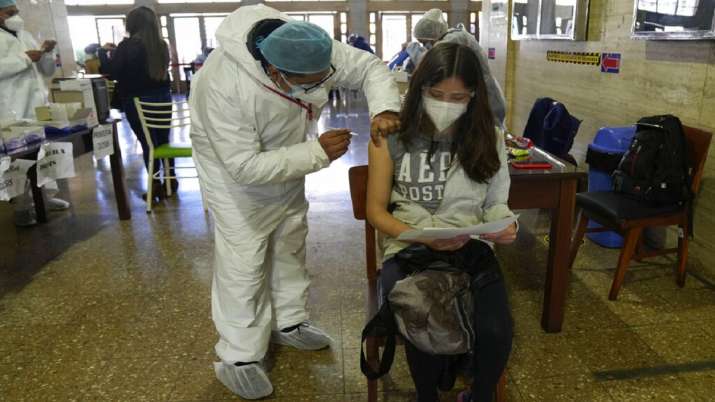
The UK government has rejected plans to shorten the interval between two doses of COVID-19 vaccination, even as infections driven by the delta variant continue to rise in the country.
The UK government has rejected plans to shorten the interval between two doses of COVID-19 vaccination, even as infections driven by the delta variant continue to rise in the country.
The Joint Committee on Immunization and Immunization rejected the three-week gap and recommended an “8 to 12-week gap between doses of all available COVID-19 vaccines”, hoping the UK would be able to ramp up the immunization programme. could. Closing the interval between doses, the Financial Times reported.
The advisory body said this distinction will help “avoid confusion and simplify booking, and ensure a fine balance between achieving faster and longer-lasting security.”
Last week, Prime Minister Boris Johnson said the UK was “very likely” to ease lockdown measures on 19 July. It was pushed back four weeks to June 21 amid concerns over the spread of the delta version.
The FT, citing people familiar with the UK immunization programme, said the easing of lockdown measures could be a cause for concern as the country would not meet its target of ensuring twice the number of adults to two-thirds.
National Health Service (NHS) experts and scientists are concerned as only 63 per cent of people in the country have been fully vaccinated, while over 85 per cent have only received their first dose of a COVID vaccine. Also the latest data shows that the Kovid-19 infection has increased by 74 percent week-on-week.
Professor Lawrence Young, a virologist at Warwick Medical School, was quoted as saying: “We have weakened the link between infections, hospitalizations and deaths, but this significant increase in Delta variant infections raises serious concern. “
“There was a risk that as the virus spreads, it would continue to generate new variants increasing the risk that someone more vaccine would be resistant,” he said.
While some suspect that the difficulty in accessing supplies has led to the decision not to bridge the gap between the two jobs. However, government insiders have ruled out supply constraints, the report said.
But, JCVI deputy chairman Prof Anthony Harden said: “A minimum eight-week gap was preferable despite supply constraints because it meant younger people, who cannot get boosters in the autumn, have stronger and longer lives.” There was ongoing security.
Read also: Face masks will become a personal choice once the UK lifts the lockdown
Read also: UK reports highest daily increase of COVID cases since late January
.